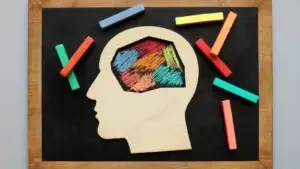If you have ever stared at the clock at 2 a.m., wide awake even though you are exhausted, you know how frustrating insomnia can be. CBT-I can help with trouble falling asleep, waking in the night, or getting up too early which influences everything, including energy, mood, focus, and health.
Many people try sleep medication. It can help in the short term, but it often does not solve the root problem. That is where Cognitive Behavioral Therapy for Insomnia, or CBT-I, comes in.
What Is CBT-I?
CBT-I is an evidence-based therapy that helps you change the thoughts and habits that keep you stuck in the cycle of poor sleep. It is considered the gold standard treatment for chronic insomnia and has a strong research base behind it.
The goal is not only to get a few better nights. It is to reset how your mind and body work together around sleep so you feel more confident in your ability to rest when you need to.
RELATED: What is CBT and How it Can Help with Your Mental Health
How CBT-I Works
CBT-I usually takes place over 6 to 8 sessions with a trained therapist. Each session builds on the last, and the plan is tailored to you.

Understanding Sleep and Your Body
You will learn the basics of sleep cycles, your circadian rhythm (your internal body clock), and sleep pressure (the natural drive to sleep that builds the longer you are awake).
For example, staying in bed when you are not sleeping can weaken that sleep drive. Understanding how sleep works often reduces pressure and fear around bedtime.
Shifting Thoughts About Sleep
Anxious thoughts make it harder to fall asleep. You might think, “If I do not fall asleep right now, tomorrow will be a disaster.”
In CBT-I you will practice noticing these thoughts and replacing them with more balanced ones, such as, “Even if tonight is not perfect, I have handled tired days before.” This lowers anxiety and helps your body settle.
Changing Sleep Habits and Routines
Behavioral tools help retrain your system:
– Sleep restriction limits time in bed to match actual sleep, which strengthens sleep drive and deepens rest over time.
– Stimulus control rebuilds the bed-sleep connection. Bed becomes for sleep and intimacy, not for scrolling or worrying.
– Wind-down routines such as gentle stretching, breathing, or journaling signal that it is time to rest.
Looking at Daily Habits
Together you will review caffeine, alcohol, exercise, screen use, light exposure, and irregular schedules.
You do not need to be perfect. The aim is to notice which changes make the biggest difference for you.
What to Expect from CBT-I

CBT-I is collaborative. You will likely keep a short sleep diary so you and your therapist can spot patterns. One week you might set a consistent wake time. The next week you might add a simple relaxation exercise before bed.
Progress is usually steady, with occasional ups and downs. For example, limiting time in bed can feel hard at first, but it is temporary and helps reset your sleep system.
CBT-I can be done in person or virtually. Research shows it works just as well online. Many people prefer virtual sessions because they can track sleep from home and meet without disrupting their schedule.
Who Can Benefit from CBT-I?
CBT-I is especially helpful for people who:
– Have struggled with sleep for months or years
– Want a medication-free approach
– Notice that stress, anxiety, or shift work is affecting sleep
– Want tools they can return to whenever sleep gets tricky again
Many people notice small improvements within a few weeks, and those gains build with practice.
Why CBT-I Helps for the Long Term
Medication effects often fade when you stop taking it. CBT-I teaches skills you can use for life. Once you learn the tools, you can bring them back during stressful seasons, travel, or life changes.
It is not about perfect sleep every night. It is about breaking the cycle of insomnia and trusting your body’s ability to rest again.
Final Thoughts
Insomnia can feel relentless, but it is changeable. CBT-I offers a clear, supportive path to better sleep by addressing what fuels the problem in the first place.
With patience and guidance, many people move from restless nights to more restorative rest, and with that comes more energy, focus, and ease in daily life.
Good sleep is possible again. CBT-I gives you the tools to quiet your mind, rebuild healthy sleep habits, and trust your body’s natural rhythm.
You don’t have to face restless nights alone — a trained therapist can help guide the process and tailor strategies that fit your life.
If you’re ready to start improving your sleep, Get Matched with a Therapist who’s experienced in CBT-I and begin learning how to rest more easily again.








